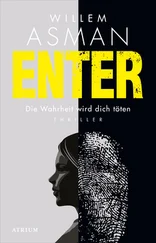William Axon - Echoes of old Lancashire
Здесь есть возможность читать онлайн «William Axon - Echoes of old Lancashire» — ознакомительный отрывок электронной книги совершенно бесплатно, а после прочтения отрывка купить полную версию. В некоторых случаях можно слушать аудио, скачать через торрент в формате fb2 и присутствует краткое содержание. Жанр: foreign_antique, foreign_prose, на английском языке. Описание произведения, (предисловие) а так же отзывы посетителей доступны на портале библиотеки ЛибКат.
- Название:Echoes of old Lancashire
- Автор:
- Жанр:
- Год:неизвестен
- ISBN:нет данных
- Рейтинг книги:3 / 5. Голосов: 1
-
Избранное:Добавить в избранное
- Отзывы:
-
Ваша оценка:
- 60
- 1
- 2
- 3
- 4
- 5
Echoes of old Lancashire: краткое содержание, описание и аннотация
Предлагаем к чтению аннотацию, описание, краткое содержание или предисловие (зависит от того, что написал сам автор книги «Echoes of old Lancashire»). Если вы не нашли необходимую информацию о книге — напишите в комментариях, мы постараемся отыскать её.
Echoes of old Lancashire — читать онлайн ознакомительный отрывок
Ниже представлен текст книги, разбитый по страницам. Система сохранения места последней прочитанной страницы, позволяет с удобством читать онлайн бесплатно книгу «Echoes of old Lancashire», без необходимости каждый раз заново искать на чём Вы остановились. Поставьте закладку, и сможете в любой момент перейти на страницу, на которой закончили чтение.
Интервал:
Закладка:
The first book printed in Manchester, so far as the present evidence goes, was Jackson’s “Mathematical Lectures,” but it was the fruit of the second printing-press at work in the town.
Thomas Lurting: a Liverpool Worthy
Quakerism has a very extensive literature, and is especially rich in books of biography; which are not only of interest from a theological point, but are valuable for the incidental and sometimes unexpected light which they throw upon the history and customs of the past. One of the early Quaker autobiographies is that of Thomas Lurting, a Liverpool worthy, who has not hitherto been included by local writers in the list of Lancashire notables.
Thomas Lurting was born in 1629, and, in all probability, at Liverpool. The name is by no means a common one, but it is a well-known Liverpool name, and many references to its members will be found in Sir James Picton’s “Memorials and Records.” 1 1 We append a few short notices of this family, in chronological order. 1333-1345. In the time of Richard de Bury, Bishop of Durham, W. Lurtyng, of Chester, is mentioned. See 31st Report of Record Office, p. 82. The following are extracts from the “Liverpool Municipal Records”: — 1581. On the 21st August, John Lyrting, residing in Juggler Street, Liverpool, was assessed for a “Taxation or Levy at the sum of xviid.” – the highest charge in the street being 2s. 6d., and the lowest 4d. – ii., 218. 1617. Thomas Lurting, Juggler Street. – ii., 827. 1628, 7th October. “Item, wee prsent Thomas Lurtinge for switchinge Nicholas Rydinge wth a sticke.” – iii., 63. 1636/7. Nich Lurting first in jury. – iii., 177. 1644. John Lurting, “saler,” burgess of Liverpool. – iii., 359. 1644 and 1649. Peter Lurting and Thomas Lurting, freemen (iii., 361). Also John Lurting, Smith, Wm. Lurting de Cestr, Wm. Lurting, Smith, and Robert Lurting. 1651. “Tho. Lurting, for a Tussle upon Thos. Hoskins, iiis. iiiid.” – iii., 506. 1663-4. Peter Lurting, Mayor. 1672. Peter Lurting, tenant of Godscroft, 1s. rent; Rich. Lurting, of a smithy at Water Side, 5s.; Rich. Lurting, Castle Hill, 13s. for 13 yards front.
From 1580 to the close of the seventeenth century they appear to have been conspicuous citizens. John Lurting was a councillor and “Merchant ’Praiser” in 1580. A John Lurting was bailiff of the town in 1653; but three years earlier had so little reverence for civic dignity as to style one of the aldermen “a cheating rogue.”
From his own narrative we learn that in 1646, at the age of fourteen, Thomas Lurting was “impressed,” and served in the wars against the Irish, Dutch, and Spaniards. He gives a graphic account of the sea-fight at Santa Cruz in 1657, by our great English admiral Blake, in which the Spaniards came off second-best. At the time of his conversion he was boatswain’s mate on the Bristol frigate. There were two young men on board, who had some conversation with a soldier who had been present at a Quaker’s meeting in Scotland. The soldier soon after left the ship; but what he had said came back to the minds of the young men, and presently they refused to listen to the chaplain, or to take their hats off to the captain, who added to his seafaring functions the quality of a Baptist preacher. The chaplain complimented Lurting as “an honest man and a good Christian,” so long as, in his capacity of boatswain’s mate, he persecuted the two youthful Quakers. Great was the amazement when Lurting joined himself to those despised children of light. The chaplain and the captain in vain tried to convince him of the errors of his new theological associates. The Quakers increased, until instead of two there were fourteen in the ship. There was an epidemic of sickness, and the Quakers were known by the care they took of each other and their brotherly sympathy. When he got well the captain allowed Lurting to have his old cabin – which had the reputation of being haunted – both for a sleeping room and for a meeting-place.
At this time the Quaker mariners did not object to take their share of fighting, but when going into an engagement at Barcelona, it came into Lurting’s mind that it was unlawful to slay. The Quakers having decided to “bear their testimony” against war, had an unpleasant time. Off Leghorn, in 1655, the preacher-captain drew his sword to run one of them through.
Thomas Lurting was several times impressed after the Restoration of Charles II., but he refused either to do the King’s work or eat the King’s victual. On one of these occasions, after five days’ fasting, he was put ashore.
But the most remarkable incident in Lurting’s life was one which occurred when, after he had become a “harmless Christian,” he was mate of a ship that was captured by an Algerine pirate. The English sailors, following Lurting’s instructions, managed to turn the tables and make the Turks their prisoners; but, instead of selling the pirates for slaves, as they had the opportunity to do, they put them on shore not far from an Algerine town. The pirates marvelled greatly at this unexpected treatment, and the captives and ex-captives took an affectionate farewell of each other. Lurting’s account of this remarkable transaction was written at Liverpool in 1680, and was printed in George Fox’s “To the Great Turk and his King, at Algiers.” Of this tract there is a copy in the Midgley Library, at Manchester (Vol. 16, Tract 7), and it is reprinted in the “Doctrinal Books of George Fox” (London, 1706, p. 778). Lurting’s letter to the founder of the Society of Friends is sufficiently curious to be worth quoting in full: —
Dear Friend,
Thine I have received: In Answer to thy request, I have given thee an Account as well and as near as I can; but as to the exact time I cannot, for I have not my Books. I was George Pattison’s Mate, and coming from Venice, being near a Spanish Island called May-York, 2 2 Majorca.
we were Chased by a Turkish Ship or Patah, as sometimes before we had been, and thinking by our Vessels well Sailing, might escape: But Providence Ordered it So, That by carrying over-much Sail, some of our Materials gave way, by which means the said Turk came up with us, and commanded the Master on Board, who accordingly went with four Men more, leaving me and three Men, and a Boy on Board our Ship; and so soon as our Men came on Board the Turk, they took them all out of the Boat, and came about 14 Turks in our Boat. All which time I was under a very great Exercise in Spirit, not so much for my self, because I had a secret Hope of Relief; but a great Stress lay upon me, for the Men in this very Juncture of time; for all Hope of outward Appearance being then gone; the Master being on board of the Turk, and four more, and the Turks just coming on Board, I being as one, even as if I were or were not, only desiring of the Lord for Patience in such an Exercise, and going to the Vessel-side, to see the Turks come in, the Word of Life, run through me, Be not afraid, for all this thou shalt not go to Algier. And I having formerly good Experience of the Lords doing upon several such like Occasions, as in times of War, I believed what the Lord did say in me: At this all kind of Fear was taken from me, and I received them as a Man might his Friend; and they were as Civil, so shewing them all parts of the Vessel, and what she was laden with withal, then I said to them that were our Men; Be not afraid, for I believe for all this we shall not go to Algier, but let me desire you, as you have been willing to obey me, so be as willing to obey the Turks. For by our so doing I saw we got over them, for when they saw our great Diligence, it made them careless of us, I mean, in securing of us; So when they had taken some small Matter of what we were laden withal, some went on Board their own Ship again, and some staid with us, which were about Eight. Then began I to think of the Master and the other Four, which were in the Turks ship; for as for my self and the other with me, I had no fear at all; Nay, I was far from it, That I said to one then, Were but the Master on Board, and the rest, if there were twice so many Turks, I should not fear them; So my earnest Desire was to the Lord, That he would put it into their Hearts, to send him on Board with the rest, and good was the Lord in answering, for it was a Seal, to what he before spoke through me. As soon as the Master was on Board with the rest, all manner of Fear was off me, as to my going to Algier, and some said to me, I was a strange Man, I was afraid before I was taken, but now I was taken, I was not; my answer was, I now believe I shall not go to Algier, and if you will be ruled by me, I will act for your Delivery, as well as my own. But as yet I saw no way made, for they were all Arm’d, and we without Arms. Now we being altogether, except the Master, I began to reason with them, What if we should overcome the Turks, and go to May-York? At which they very much rejoyced; and one said, I will Kill One or Two, another said, I will cut as many of their Throats, as you will have me; this was our Mens Answer. At which I was much troubled, and said unto them, If I knew any of them that offered to touch a Turk, I would tell the Turks my self. But said to them; If you will be rul’d, I will act for you, if not, I will be still; to which they agreed to do, what I would have them. Then said I, if the Turks bid you do any thing, do it without grumbling, and with as much Diligence and Quickness as you can, for I see that pleases them, and that will cause them to let us be together: To which they agreed.
Интервал:
Закладка:
Похожие книги на «Echoes of old Lancashire»
Представляем Вашему вниманию похожие книги на «Echoes of old Lancashire» списком для выбора. Мы отобрали схожую по названию и смыслу литературу в надежде предоставить читателям больше вариантов отыскать новые, интересные, ещё непрочитанные произведения.
Обсуждение, отзывы о книге «Echoes of old Lancashire» и просто собственные мнения читателей. Оставьте ваши комментарии, напишите, что Вы думаете о произведении, его смысле или главных героях. Укажите что конкретно понравилось, а что нет, и почему Вы так считаете.












